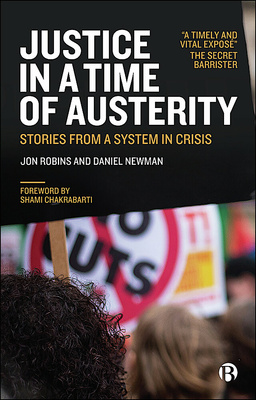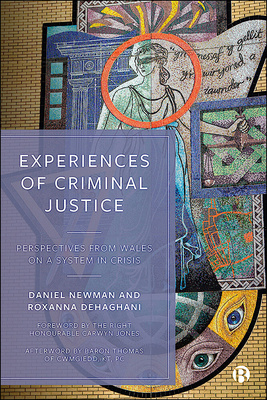Criminal lawyers have claimed victory over the UK government following a judicial review heard at the High Court, after the government failed to increase criminal defence solicitors’ legal aid rates by the bare minimum 15%, as recommended by a landmark report into criminal legal aid funding in England and Wales in 2021. The Lord Chancellor was found to have acted irrationally in his treatment of the report.
Criminal legal aid is important in helping to provide access to justice for those suspected or accused of crimes, when faced with the might of the state. One example of this is that everyone has the right to publicly funded legal advice if they are arrested. The police station is the most significant site in a criminal case: if a suspect incriminates themselves here, it is all but impossible to come back from at court. And many of the most notable miscarriages of justice in England and Wales have come from police mistreatment of suspects in interrogation, which the presence of a lawyer should help prevent.
However, the practical application of this right to a lawyer is under threat without enough duty solicitors to cover police station interviews. Fewer and fewer duty solicitors are available to help, due to cuts in legal aid fees. Many legal aid lawyers have been driven out of criminal defence work because it’s no longer financially viable. More than 1,000 duty solicitors have left since 2017 – a fall of more than a quarter. It is predicted that the number of duty solicitors will decrease further by at least a fifth by 2025 (nearly 700 fewer duty solicitors).
Criminal defence work is stressful, with antisocial hours, larger caseloads, intense subject matter, high stakes and vulnerable clients. And many criminal solicitors do not feel that their levels of pay match the exertion of the work. Indeed, there are questions simply about the viability of working in criminal legal aid. In this case, the court heard that just under 90 per cent of fees earned are used to cover costs, so for a firm to make any profit, an average fee-earner must generate three times their salary. The case also reflected on average net profit margins for criminal legal aid firms dropping from between 0 and 5 per cent in 2018/19 to between -10 and -5 per cent in 2020/21. The judges further discussed how the number of criminal legal aid firms currently sits at 1,127, falling from 1,510 in 2015 – a decrease of around a quarter.
It is against just this backdrop of financial hardship for the sector that the Ministry of Justice had launched the Independent Review of Criminal Legal Aid (CLAIR) in 2020, which reported the following year. This review was led by Sir Christopher Bellamy KC (now a peer in the Ministry of Justice) and explored what could be done to improve criminal legal aid for providers and the public. The report he produced was at the heart of the case.
CLAIR argued that funding for criminal legal should be increased for solicitors and barristers as soon as possible to an annual level of ‘at least 15 per cent’ above existing levels to ensure that a ‘level playing field’ between the state and those suspected or accused of crimes was maintained. For Bellamy, ‘£135m is, in my view, the minimum necessary as the first step in nursing the system of criminal legal aid back to health after years of neglect.’
The government reacted to this review with a commitment to increase fees by ‘up to 15 per cent’. However these figures were contested by practitioners and professional groups, who argued that the real-terms effects be lower in practice. The limited response from the government led to a four-week industrial action by criminal barristers led by the Criminal Bar Association in 2022. Barristers were eventually offered a pay deal that included a 15 per cent increase on legal aid rates in return for ending their indefinite strike.
However, criminal solicitors were not treated the same and that year the government gave them a 9 per cent increase to criminal legal aid funding with a further 2 per cent following in 2024. This represented a real-terms cut to rates of criminal legal aid: below the level of inflation.
Until these recent increases, there had been no increase in the rates of criminal legal aid since 1998. The Criminal Law Solicitor’s Association estimated has identified that, in effect, criminal legal aid rates had been cut by 42 per cent. And that figure would be worse in practice because it did not include the actual cut that was made as part of the coalition government’s austerity programme. Indeed, there was an 8.75 per cent cut to criminal legal aid fees introduced in 2014 (a further 8.75 per cent cut planned for the following year was eventually cancelled).
This underfunding and the crisis in criminal legal aid was the context for this decision in the High Court. The Law Society, as the professional body for solicitors, brought the judicial review to hold the government to account for the perceived inadequacy of the response to the problems faced by the sector.
Four grounds were raised by the Law Society. Two were rejected by the court: the Lord Chancellor was not found to have breached his duty to provide criminal legal aid nor to have failed to provide adequate reasons for their actions. The other two grounds raised by the Law Society were successful. The Lord Chancellor was found to have acted irrationally and to have breached his duty to make adequate enquiries.
The Lord Chancellor was noted to have accepted the findings and conclusions of Bellamy’s report in their entirety – including the central recommendation of increasing fees by at least 15 per cent – and recognised that there was no time for delay in making the change. However, he did not put the required change into place. The court found that ‘The Lord Chancellor’s failure to implement the central recommendation in full is, it is contended, irrational. The evident funding gap amounts to a significant disparity in terms of outcome, and the only reasonable conclusion must be that the Lord Chancellor has failed to achieve the aims of the CLAIR report – the sustainability of criminal legal aid.’
The Lord Chancellor also failed to ask the right questions nor collect the right evidence to properly assess whether the aims of CLAIR could be fulfilled based on the 4 per cent shortfall between the recommendation and the actual uplift offered by the government. The relative inaction had consequences for the criminal justice system. The judges said: ‘In short, the evidence from solicitors working at grass-roots level is that the system is slowly coming apart at the seams.’ The judgement further claimed that: ‘Unless there are significant injections of funding in the relatively near future, any prediction along the lines that the system will arrive in due course at a point of collapse is not overly pessimistic.’
Our research into criminal justice – as in other excellent recent examples of academic work on criminal lawyers and courts – attests to the perilous state of access to justice for those suspected and accused of criminal offences. This judgement is welcome recognition of the failure of this government (as with previous governments) to fix the problems. Change is needed to save criminal legal aid for the good of all who would rely on it.
Daniel Newman is Reader in Law at Cardiff University.
Justice in a Time of Austerity by Jon Robins and Daniel Newman and Experiences of Criminal Justice by Daniel Newman and Roxanna Dehaghani are available here for £9.99 and here for £26.99 on the Bristol University Press website.
Bristol University Press/Policy Press newsletter subscribers receive a 25% discount – sign up here.
Follow Transforming Society so we can let you know when new articles publish.
The views and opinions expressed on this blog site are solely those of the original blog post authors and other contributors. These views and opinions do not necessarily represent those of the Bristol University Press and/or any/all contributors to this site.
Image credit: PjrNews via Alamy Stock Photo




